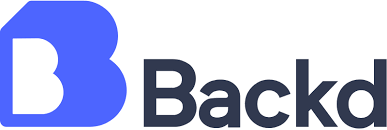How to Get a Small-Business Loan Without Collateral
Collateral or not, most small-business owners will still have to put assets on the line to qualify for a loan.
Many, or all, of the products featured on this page are from our advertising partners who compensate us when you take certain actions on our website or click to take an action on their website. However, this does not influence our evaluations. Our opinions are our own. Here is a list of our partners and here's how we make money.
Concerned about tariffs?
Many small-business owners are under increased economic stress and uncertainty following the latest tariff announcements. NerdWallet is here to help you find answers for whatever you're looking for. Here are some resources to help you get started:
- Need emergency funding? Consider a business line of credit.
- Looking for fast access to working capital? Discover the best working capital loans.
- Want tips on how to mitigate the impact of tariffs? Read our guide.
Business loans that don’t require collateral come in a variety of forms, including online loans, bank loans and SBA loans. While getting a small-business loan without collateral isn’t impossible, lenders will often charge higher interest rates or additional fees, or require a personal guarantee or lien agreement. This means you're likely to pay more for these loans, and your assets may still be on the hook in the event of a default.
How much do you need?
We'll start with a brief questionnaire to better understand the unique
needs of your business.
Once we uncover your personalized matches, our team will consult you
on the process moving forward.
Find the right loan for your business
Tell us how much you need and see your options in minutes.How do business loans without collateral work?
Business loans are typically secured by collateral — such as real estate, vehicles, equipment, personal savings and more — so if a borrower defaults on payments, the lender has assets to seize to cover the loan’s cost. In addition to this safety net for lenders, collateral on business loans also raises the stakes for business owners.
If a borrower doesn’t put any collateral on the line, they’ll usually need to offer something else to mitigate the lender’s risk, like a personal guarantee or a Uniform Commercial Code lien (UCC). A personal guarantee gives lenders a legal right to your personal assets if you default on loan payments, while a UCC lien gives lenders generalized access to all or a portion of your business assets.
Small-business owners may also consider emphasizing their success in areas like annual revenue, time in business or personal credit score to boost their chances of getting these types of loans. But even well-established, successful businesses might need to clear extra hurdles to avoid putting collateral on the line.
Types of small-business loans without collateral
The following are types of funding that don’t require traditional forms of collateral.
Online loans
Online business loans are often easier to apply for and quicker to fund than bank or SBA loans, but high interest rates can make them more expensive. While they don’t all require collateral, borrowers may still have to sign a personal guarantee or agree to a blanket lien on their business assets. Added costs aside, online loans can be a good alternative for business owners who don’t meet traditional banks’ loan requirements, but who still have personal credit scores above 600 and have been in business for at least six months.
Bank loans
Some banks offer unsecured financing through business lines of credit or term loans, with amounts that can range from $5,000 to $150,000. Term loans offer an upfront lump sum of money, while business lines of credit only require you to pay interest on the money you borrow, up to a preset limit. Applying for a business loan through a bank will likely be more rigorous and time-consuming than applying for an online loan.
SBA loans
For SBA loans of $50,000 or less, borrowers do not need to offer collateral. However, all SBA loans, regardless of the amount, do require a personal guarantee from business owners with 20% or more equity. Unsecured SBA loans will most likely come in the form of a 7(a) loan, the most common type of SBA-backed funding, or a CDC/504 loan that collateralizes the property acquired through funding, which allows the borrower to avoid putting up other collateral.
How Fundera by NerdWallet Works
Getting a business loan can be challenging. Let our sales experts help you through the process.

Fill out a simple application Our 3-min. questionnaire is free & won't impact credit.

See your loan options Compare rates and repayment terms to choose the best product for your needs.

Get your loan If approved, sign closing documents and receive funds.
Small-business loans that don’t require collateral
Requirements for business loans without collateral
Virtually all lenders have minimum standards for a company's annual revenue and time in business, and the owner's personal credit score may also be a factor. But unsecured business loans may involve other requirements designed to protect or incentivize the lender.
- Personal guarantee: In addition to giving lenders access to your personal assets, a personal guarantee puts more at stake for you, demonstrating to the lender that you are serious about repaying the loan.
- UCC lien: A Uniform Commercial Code lien is very common in business lending, and is essentially collateralizing any assets your business acquires in the future (at least through the life of your loan).
- Elevated annual percentage rates: In general, you may find that unsecured loans have higher APRs across the board, since they’re riskier for lenders than a secured loan. Online loans have some of the highest APRs, while SBA loans and bank loans tend to have lower APRs.
» MORE: How to apply for a business loan
Self-collateralizing financing options
With the following funding options, the items being financed themselves serve as the collateral for the loan. So although they aren’t technically unsecured business loans, these financing types often don’t require business owners to put any additional business or personal assets at risk.
- Equipment financing: Small-business owners can use these loans to buy equipment for their business and the equipment being purchased typically serves as the collateral for the loan. Equipment financing is available from banks, online lenders or SBA lenders.
- Inventory financing: Entrepreneurs with retail stores or manufacturing businesses can apply for inventory financing to purchase items they’ll later sell or use to produce other products. Like with equipment financing, the inventory being purchased is generally used as collateral.
- Invoice financing: Also known as accounts receivable financing, invoice financing lends business owners money against customers’ unpaid invoices. Similar to a cash advance, invoice financing is often easier to qualify for than a bank loan and can help manage short-term cash flow issues. However, depending on the terms of the agreement, unpaid invoices may only be able to stand in as collateral up to a certain point. If the client never pays their invoice, the owner might have to make up for the sunk cost themselves.
Frequently Asked Questions
Can you get a business loan with no collateral?
It is possible to get a small business loan without collateral, but it can be harder to get approved, and there are additional requirements such as personal guarantee, UCC liens and higher annual percentage rates.
How do I qualify for an unsecured business loan?
This will depend on requirements specific to each lender, but generally it’s helpful to have good personal credit, low business debt and well-established revenue and time in business.
Article sources
NerdWallet writers are subject matter authorities who use primary,
trustworthy sources to inform their work, including peer-reviewed
studies, government websites, academic research and interviews with
industry experts. All content is fact-checked for accuracy, timeliness
and relevance. You can learn more about NerdWallet's high
standards for journalism by reading our
editorial guidelines.
Related articles

















